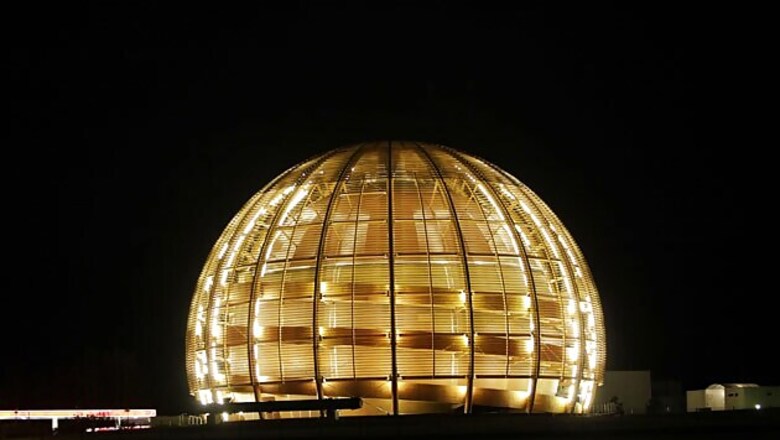
views
Geneva: A groundbreaking science experiment is currently underway in CRM laboratories in Geneva which hopes to recreate the Big Bang, the theory that states a colossal explosion created the cosmos, to unlock the secrets of the universe.
It is the biggest scientific undertaking ever attempted. It has taken 14-years and 10-billion dollars in the making.
Ten thousand scientists from 85 countries have worked on this massive project located underneath the French-Swiss Border.
The project aims to understand the secrets of the universe by recreating the moments just after Big Bang.
At the centre of the project is the Large Hadron Collider or LHC affectionately called the Big Bang Machine at CERN, the European Particle Physics Laboratory near Geneva, which is responsible for analyzing particle collision.
Beam particles around 27 kilometers or 17 miles of underground track at nearly the speed of light will smash them together and recreate conditions less than a microsecond after the Big Bang.
Massive detectors will try and track down sub-atomic particles released from the collision.
The most highly anticipated is the ‘The Higgs Boson’ also known as ‘The God Particle’ - theorized but not yet proven to exist.
Scientists believe it gives matter its mass, allowing for the formation of stars, planets and whole galaxies.
Researches also hope to find evidence of new particles, new dimensions and possibly the elusive ‘dark energy’ and ‘dark matter’ that scientists believe make up most of the universe.
However, some fear the experiment will create a black hole that will swallow the earth, but CERN says this will not happen.
Scientists say a microscopic black hole is possible, but it would be too small and too unstable, winking out of existence in a matter of seconds.
Critics also question what they see astronomical billions of dollars in cost, but for many physicists there is no question.
"You are culturally deprived if you can't appreciate the amazing chain of events and the mysterious beginning 13 to 14 billion years ago, through atoms, stars, galaxies, planets and biospheres," say scientists.
Understanding how the universe works, they believe, is worth the cost and the risk.
(With inputs from Atika Shubert)




















Comments
0 comment